
Key Takeaways
- B2B eCommerce: Online transactions between businesses, streamlining buying and selling processes.
- Types of B2B eCommerce: Direct selling, marketplaces, auctions, subscription services, and customization.
- B2B eCommerce marketing strategies: Content marketing, SEO, account-based marketing, social media marketing, and email marketing.
- Platforms of B2B eCommerce marketing: Shopify Plus, BigCommerce, WooCommerce B2B, Magento Commerce for B2B, and 3dcart.
- Upcoming trends of B2B eCommerce marketing: Personalization, mobile commerce optimization, omnichannel marketing, influencer marketing, and data-driven marketing.
B2B eCommerce marketing has become a driving force behind successful business-to-business transactions in the digital age.
With the ever-evolving landscape, businesses must stay on top of proven strategies and emerging trends to effectively navigate the competitive B2B eCommerce market.
From personalized experiences to mobile optimization and omnichannel marketing, this article explores the dynamic world of B2B eCommerce marketing and unveils the strategies and trends that businesses can harness to achieve growth, engage customers, and foster long-term success.
What do you mean by B2B eCommerce?

B2B eCommerce refers to online transactions between businesses rather than individual consumers.
It involves selling and purchasing products or services online between two or more companies.
It’s like an online marketplace where businesses can find and connect with other businesses to buy or sell goods or services.
For example, there’s a company that sells office supplies.
They can use B2B eCommerce marketing to create an online store where other businesses can easily order and purchase their products in bulk, making the process faster, more efficient, and convenient for both parties involved.
Types of B2B eCommerce

B2B eCommerce encompasses various types of online transactions between businesses, with B2B eCommerce marketing.
It plays a crucial role in promoting and facilitating these interactions.
Let’s delve into the different types of B2B eCommerce in more detail.
1. Direct selling
In this approach, businesses sell their products or services directly to other businesses through their own online stores or websites.
This method offers greater control over the sales process, allowing companies to tailor the customer experience according to their specific needs.
B2B eCommerce marketing strategies like personalized messaging, targeted promotions, and account-based marketing can enhance customer engagement and drive sales.
2. Marketplaces
B2B marketplaces act as online platforms where multiple sellers can showcase and offer their products or services to potential buyers.
Considering the growing popularity of B2B marketplaces, investing in marketplace development can be a strategic move for businesses to expand their reach and increase sales opportunities
These marketplaces provide a wide range of options for businesses. It enables them to compare different offerings before making a purchase.
B2B eCommerce marketing tactics such as search engine optimization (SEO) and sponsored listings can help businesses stand out in crowded marketplaces and attract potential customers.
3. Auctions
B2B auction platforms allow businesses to participate in bidding for products or services offered by other businesses.
This type of eCommerce can be advantageous for companies seeking cost-effective solutions or unique offerings.
B2B eCommerce marketing can play a role in promoting these auctions, generating awareness among businesses, and driving participation.
Marketing efforts might include email campaigns, social media advertising, and content marketing to highlight the benefits and value of participating in B2B auctions.
4. Subscription services
B2B eCommerce has expanded beyond traditional product sales and now includes subscription-based services.
Businesses can offer subscription models where other companies can subscribe to receive ongoing services or access to specialized software platforms.
This approach allows businesses to establish long-term relationships with their customers, providing them with continuous value and generating predictable revenue streams.
B2B eCommerce marketing can focus on highlighting the convenience, cost savings, and scalability of subscription services, enticing businesses to subscribe and enjoy the benefits over time.
5. Customization & Personalization
B2B eCommerce marketing emphasizes the importance of customization and personalization.
Unlike B2C eCommerce, where individual consumers often seek standardized products, B2B buyers often require customized solutions tailored to their specific business needs.
B2B eCommerce platforms can provide features that allow businesses to customize products or services, request personalized quotes, or access dedicated account managers.
Effective B2B eCommerce marketing can highlight how these customization options can address specific pain points, improve efficiency.
It helps to enhance overall business performance, appealing to businesses seeking tailored solutions.
B2B eCommerce marketing strategies

B2B eCommerce marketing strategies play a crucial role in driving success and generating sales in the digital marketplace.
Let’s explore these strategies in more detail, while also introducing additional points.
1. Content marketing
Content marketing involves creating and sharing valuable and relevant content, such as blog posts, whitepapers, and case studies, to attract and educate potential customers.
By offering informative and engaging content, businesses position themselves as thought leaders in their industry, building trust and credibility among their target audience.
B2B eCommerce marketing can leverage content marketing to provide valuable insights, address pain points, and showcase expertise, ultimately nurturing leads and driving conversions.
2. Search engine optimization
SEO is a critical strategy for B2B eCommerce marketing, focusing on optimizing website content and structure to improve visibility in search engine results.
By conducting keyword research and optimizing web pages, businesses can increase their rankings for relevant search terms.
Higher rankings mean increased visibility, leading to more organic traffic to their websites.
B2B eCommerce marketing professionals employ SEO techniques like on-page optimization, link building, and technical optimizations to enhance search engine visibility and attract qualified leads.
3. Account-based marketing
ABM is a targeted marketing approach that focuses on specific accounts or companies rather than broad audience segments.
With ABM, businesses tailor their marketing campaigns to the specific needs and preferences of their target customers.
This strategy involves personalized messaging, customized offerings, and a deeper understanding of the target accounts.
B2B eCommerce marketing professionals leverage ABM to develop personalized campaigns that resonate with the identified accounts, fostering stronger relationships and increasing the chances of conversion.
4. Social media marketing
Social media platforms provide a valuable space for B2B eCommerce marketing efforts.
Businesses can utilize platforms like LinkedIn, Twitter, and Facebook to build brand awareness, engage with their audience, and promote their products or services.
Social media marketing in B2B eCommerce involves creating compelling content, participating in industry discussions, running targeted ads, and leveraging influencer collaborations.
B2B eCommerce marketing on social media can help businesses reach their target audience, drive traffic to their websites, and generate leads through effective engagement and strategic messaging.
5. Email marketing
Email marketing remains a powerful tool in the B2B eCommerce marketing arsenal.
With targeted email campaigns, businesses can nurture leads, engage existing customers, and drive conversions through the email marketing funnel.
By personalizing email content based on the recipient’s interests and preferences, businesses can deliver relevant and timely messages.
B2B eCommerce marketing through email involves automated drip campaigns, personalized product recommendations, and exclusive offers to drive engagement and boost sales.
Platforms of B2B eCommerce marketing
B2B eCommerce marketing relies on robust platforms to facilitate online transactions and drive business growth.
Here are five popular platforms specifically designed for B2B eCommerce marketing:
1. Shopify Plus
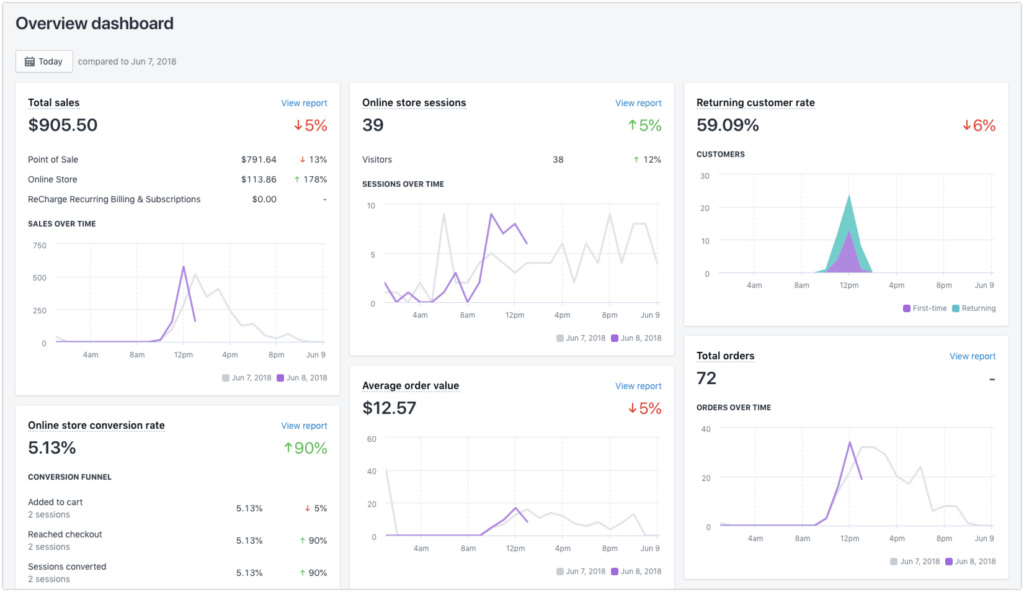
Shopify Plus offers a comprehensive B2B eCommerce solution, enabling businesses to create customizable online stores, manage inventory, process orders, and implement targeted marketing campaigns.
With features like wholesale pricing, customer segmentation, and personalized experiences, Shopify Plus empowers businesses.
It helps to optimize their B2B eCommerce marketing efforts and deliver seamless customer experiences.
2. BigCommerce
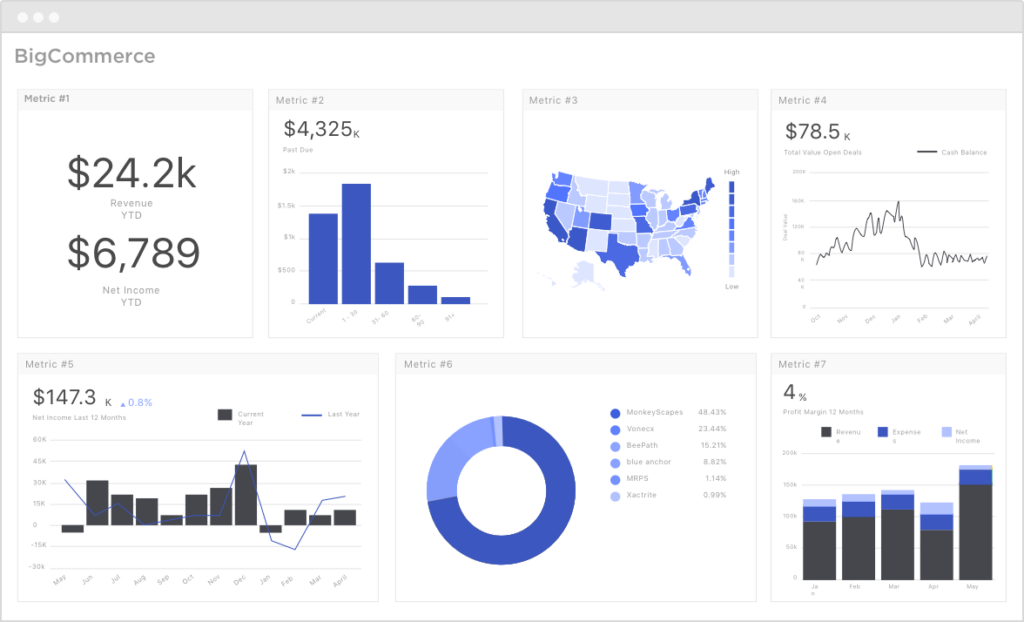
BigCommerce provides a scalable B2B eCommerce platform that caters to businesses of all sizes.
It offers extensive B2B functionality, including customer group pricing, custom catalogs, and advanced shipping options.
With powerful integrations and marketing tools, businesses can leverage BigCommerce to streamline their B2B eCommerce marketing strategies, drive conversions, and grow their online presence.
3. WooCommerce B2B
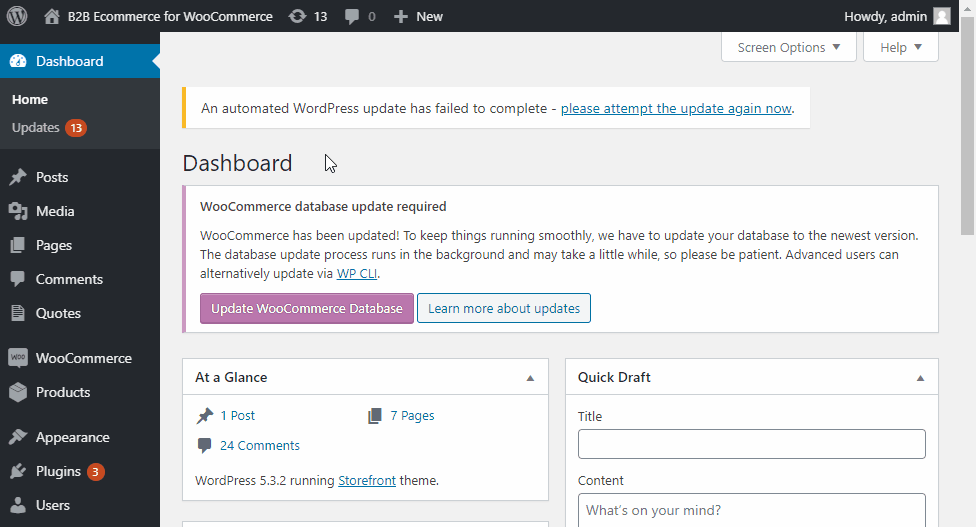
Built as an extension of WooCommerce, WooCommerce B2B focuses on meeting the unique needs of B2B eCommerce.
It provides features like bulk ordering, customer-specific pricing, and role-based access control.
Businesses can leverage this platform to create personalized B2B experiences, implement pricing strategies, and effectively market their products or services to other businesses.
4. Magento Commerce for B2B
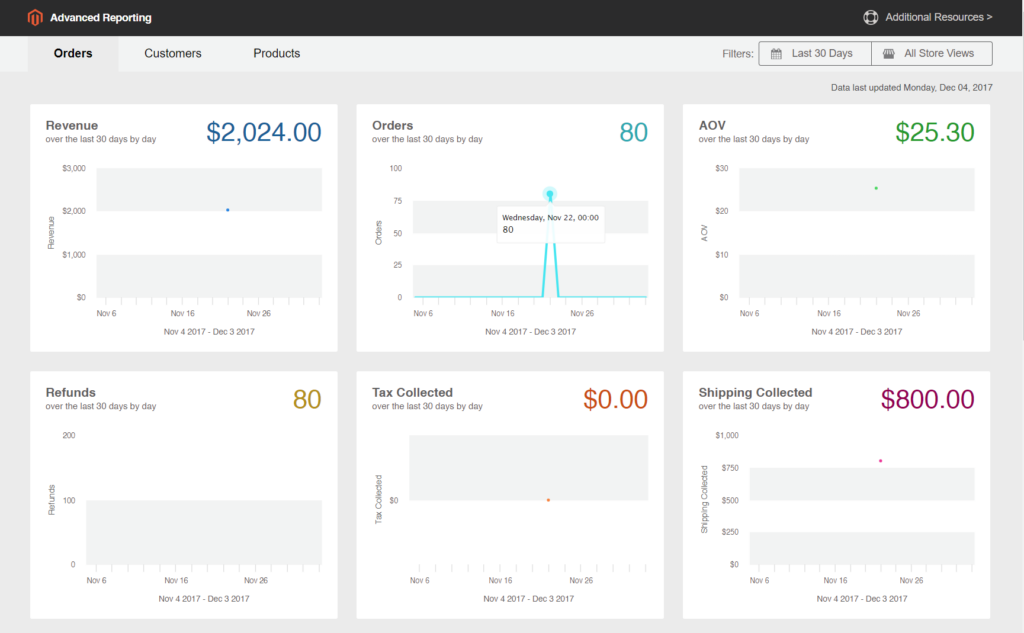
Magento Commerce offers a comprehensive B2B eCommerce solution tailored to the needs of businesses.
It provides features like custom catalogs, account management tools, and advanced pricing options.
With powerful B2B marketing tools and integrations, Magento Commerce enables businesses to optimize their B2B eCommerce marketing efforts, deliver personalized experiences, and drive customer loyalty.
5. 3dcart
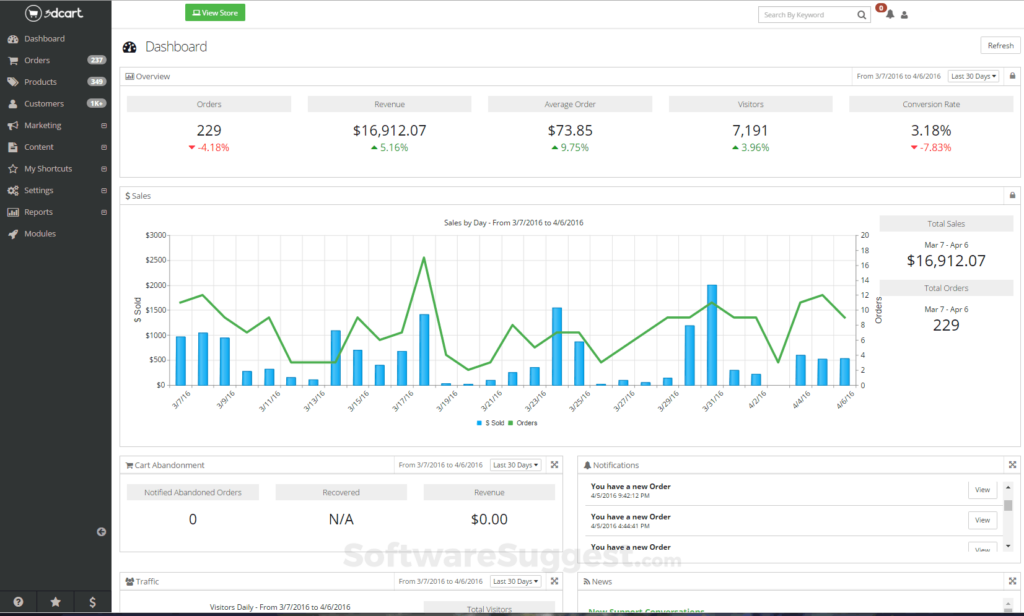
3dcart is a feature-rich B2B eCommerce platform that offers comprehensive solutions for businesses.
It provides robust B2B functionality, including bulk ordering, tiered pricing, and customer group management.
With built-in marketing tools, SEO capabilities, and integrations, 3dcart equips businesses with the tools needed to effectively market their products or services to other businesses and drive B2B eCommerce success.
What are upcoming trends of B2B eCommerce marketing

The field of B2B eCommerce marketing is constantly evolving, driven by emerging trends and changing customer expectations.
Let’s explore some of the upcoming trends in B2B eCommerce marketing in more detail, while also introducing additional points.
1. Personalization & Customization
B2B customers now expect personalized experiences and tailored solutions.
To meet this demand, businesses are leveraging technologies like artificial intelligence (AI) and machine learning (ML) to offer personalized recommendations, customized products or services, and targeted marketing campaigns.
B2B eCommerce marketing is shifting towards providing individualized experiences that address specific customer needs and preferences, fostering stronger customer relationships and driving higher engagement.
2. Mobile commerce
The proliferation of smartphones and tablets has significantly impacted B2B eCommerce marketing.
As B2B buyers increasingly rely on mobile devices for business transactions, businesses are prioritizing the optimization of their B2B eCommerce platforms for mobile experiences.
Mobile-responsive designs and dedicated mobile apps are becoming essential to provide a seamless user experience.
It allows B2B customers to conveniently browse products, place orders, and access relevant information while on the go.
3. Omnichannel marketing
B2B customers engage with businesses through multiple channels, including websites, social media, email, and offline interactions.
Omnichannel marketing aims to create a cohesive brand experience across all touchpoints, ensuring consistent messaging, branding, and customer experience regardless of the channel.
B2B eCommerce marketing professionals are adopting omnichannel strategies to connect with customers at various stages of their buying journey.
It helps to deliver a seamless and integrated experience that reinforces brand loyalty and drives conversions.
4. Influencer marketing
Influencer marketing, once predominantly associated with B2C marketing, is now making its way into the B2B eCommerce realm.
Businesses are collaborating with industry influencers, thought leaders, and experts to promote their products or services to other businesses.
By leveraging the credibility and reach of these influencers, B2B eCommerce marketing can effectively target niche audiences, build trust, and generate awareness and interest in their offerings.
5. Data-driven marketing
With the abundance of data available, B2B eCommerce marketing is increasingly driven by data analytics and insights.
Businesses are leveraging customer data to gain a deeper understanding of their target audience, their preferences, and buying patterns.
By analyzing data, businesses can refine their marketing strategies, personalize messaging, and optimize their marketing campaigns for better outcomes.
Conclusion
As B2B eCommerce continues to flourish, businesses must adapt to the evolving landscape and leverage proven strategies and emerging trends in their marketing efforts.
From personalization and customization to mobile commerce, omnichannel marketing, influencer collaborations, and data-driven insights.
This is the key to thriving in B2B eCommerce lies in understanding customer expectations and embracing innovative approaches.
By implementing these strategies and staying attuned to future trends, businesses can forge meaningful connections.
It helps to enhance customer experiences, and unlock new opportunities in the ever-expanding realm of B2B eCommerce marketing.
